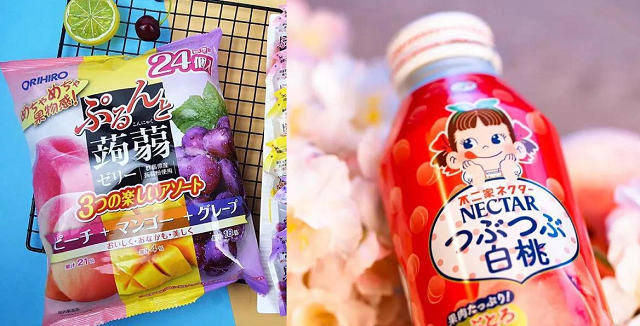Can we eat food from Japanese counties affacted by nuclear radiation?
- Normal Liver Cells Found to Promote Cancer Metastasis to the Liver
- Nearly 80% Complete Remission: Breakthrough in ADC Anti-Tumor Treatment
- Vaccination Against Common Diseases May Prevent Dementia!
- New Alzheimer’s Disease (AD) Diagnosis and Staging Criteria
- Breakthrough in Alzheimer’s Disease: New Nasal Spray Halts Cognitive Decline by Targeting Toxic Protein
- Can the Tap Water at the Paris Olympics be Drunk Directly?
China prohibits the import of food from Japanese nuclear radiation counties
- Should China be held legally responsible for the US’s $18 trillion COVID losses?
- CT Radiation Exposure Linked to Blood Cancer in Children and Adolescents
- FDA has mandated a top-level black box warning for all marketed CAR-T therapies
- Can people with high blood pressure eat peanuts?
- What is the difference between dopamine and dobutamine?
- How long can the patient live after heart stent surgery?
Can we eat food from Japanese counties affacted by nuclear radiation?
China prohibits the import of food from Japanese nuclear radiation counties.
A Chinese department store involved selling food from Nagano, Gunma and Niigata country in early 2023 and was fined 10,000 yuan by the Chinese government recently.
These Japanese foods are produced in Japanese nuclear radiation counties where China prohibits the import of food.

Nuclear radiation concern: What Japanese counties/cities were on the list?
- Fukushima,
- Ibaraki,
- Ichigi
- Gunma
- Chiba
Some countries also pay attention on the surrounding areas, such as:
- Seafood products from Miyagi and Iwate county
- Tea from Shizuoka county
- Dairy products and baby food in Miyagi, Saitama, and Tokyo
- Mushrooms from Miyagi, Iwate, Yamanashi, and Shizuoka countys .
Can we eat the food from above mentioned area?
The nuclear accident in Fukushima, Japan in 2011 resulted in the release of radioactive materials into the environment.
Following the incident, the Japanese government implemented strict measures to ensure the safety of food produced in the affected region and to monitor radiation levels.
Food safety is a significant concern after any nuclear incident, and it is crucial to pay attention to the potential effects on the food supply.
In the case of the Fukushima accident, the Japanese government and other international organizations have conducted extensive monitoring and testing to ensure that food from the affected region is safe for consumption.
The government of Japan has established strict limits on radioactive contamination in food, and any products exceeding these limits are not allowed to be sold.
Monitoring programs have been implemented to regularly test food products, including fruits, vegetables, rice, meat, fish, and dairy, to ensure their safety.
While the government’s efforts are in place to protect public health, it is always advisable to stay informed about food safety issues and follow official guidelines and recommendations.
If you have specific concerns about food originating from the affected area, it is best to refer to reliable sources such as government agencies, scientific studies, or international organizations for up-to-date information.
It’s worth noting that over time, the levels of radioactive contaminants in the environment tend to decrease naturally through radioactive decay and environmental remediation efforts.
Fukushima: The 85.5 Bq/kg radioactive cesium-137 was detected in the sea bass
Fukushima: 8 workers cancer | Thyroid cancer in children soared 23 times
How serious is the harm of Fukushima Nuclear Sewage ?
Can we eat food from Japanese counties affacted by nuclear radiation?
(source:internet, reference only)
Disclaimer of medicaltrend.org
Important Note: The information provided is for informational purposes only and should not be considered as medical advice.



